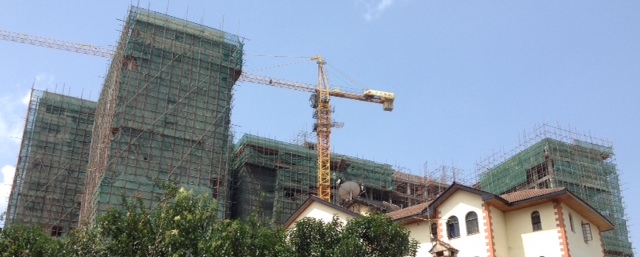I had the privilege to visit Nairobi, the capital of Kenya, in June and July 2017 for work. Nairobi is a familiar place for me since I visited this city on different occasions during my life. I worked and lived in Sudan from 2000 and 2005 and we often went to Kenya for breaks. In fact, we were with family in Eldoret on 11 September 2001, the day of the attack on the Twin Towers in New York. From my memory Nairobi used to be one of the greenest cities I knew.
But Nairobi is changing and the change is going fast. There are many urban development projects, notably the enactment of high buildings.
I do not know who is funding these large investments and who is to benefit, but it does affect the city since it is increasingly becoming just another city of concrete and bricks instead of a historically green and open city. The hotel I was staying at in July, had a natural river next to it. This river was severely polluted by garbage.
With all the current political turmoil in Kenya, after the elections, I can only hope that the new government will take into account my personal concerns. It would be a shame to earlier generations and for future generations if the natural resources of Nairobi would be depleted for ‘grand’ projects that will mostly benefit those investing. So, the question is: who is actually investing in all these tall buildings and who will reap the benefits? Secondly, who is responsible for the upkeep of the quality of the rivers?
Nairobi is the city where Dr. Wangari Muta Maathai fought for the environment. I read her inspiring book, and she rightfully won the Noble Prize. I really hope her work is being continued by other people in Nairobi, because the current ‘developments’ will make your city hotter and in the long run less attractive to live in. Please take care.

Pollution in the river next to my hotel
Geert Jan Prins, Will2Sustain.
